Top 10 deionizing water system Manufacturers and Supplier Brands
- Top 10 Deionizing Water System Manufacturers and Supplier Brands
- Introduction: Why choosing the right deionizing water system matters
- What buyers are searching for: commercial intent behind the keyword
- How we selected these top 10 deionizing water system brands
- 1. Evoqua Water Technologies — industrial deionizing water system supplier
- 2. Veolia (including SUEZ heritage) — global deionization and resin supplier
- 3. Culligan — commercial and industrial deionizing system provider
- 4. Purolite — resin specialist for deionizing water system applications
- 5. ResinTech — mixed-bed DI tanks and cartridge supplier
- 6. DuPont Water Solutions — ion exchange resins and components for deionizing water systems
- 7. H2O Innovation — turnkey deionizing and EDI system provider
- 8. Sartorius / Millipore (Merck Millipore) — lab-grade deionizing water system brands
- 9. Ecolab — service-driven deionization and resin program supplier
- 10. Aqualitek Water Treatment Technologies (AQT) — custom deionizing water systems
- Comparing technologies: mixed-bed DI, separate-bed, and EDI for purchase decisions
- How to evaluate suppliers and deionizing water system bids
- Regulatory and quality considerations for deionized water system procurement
- Cost considerations: capital vs. operating expenses for deionizing water systems
- Table: Quick comparison of top 10 deionizing water system products and capabilities
- Selecting the right vendor: five practical steps
- Maintenance expectations for deionizing water systems
- When to choose a local supplier vs. a global OEM for deionizing water systems
- Conclusion: Shortlist process and final recommendation for buying a deionizing water system
- Further resources: questions to ask suppliers when requesting a quote
- Closing note: AQT (Aqualitek) as a partner for customized deionizing water systems
- Common questions answered about deionizing water systems
- Frequently asked questions (FAQ)
Top 10 Deionizing Water System Manufacturers and Supplier Brands
Introduction: Why choosing the right deionizing water system matters
Selecting a deionizing water system is a business decision that affects product quality, operational cost, and regulatory compliance. Whether you need deionized water for manufacturing, boiler feed, laboratory use, or pharmaceutical prep, the right supplier and system type—mixed-bed ion exchange, separate-bed demineralizers, or electrodeionization (EDI)—directly impacts water purity, uptime, and total cost of ownership. This guide profiles the top 10 deionizing water system manufacturers and suppliers, highlights their strengths, and helps you compare options when you plan to buy a deionizing water system.
What buyers are searching for: commercial intent behind the keyword
Most searches for “deionizing water system” have strong commercial intent: buyers want to identify reputable manufacturers, compare product capabilities, estimate costs, and locate suppliers offering service and replacement resins or cartridges. This article focuses on actionable comparison data and supplier strengths so procurement, engineering, and facilities teams can shortlist vendors and request quotes with confidence.
How we selected these top 10 deionizing water system brands
We prioritized brands that are globally recognized or specialized in deionization technologies, have documented product lines related to deionizing water system solutions (ion exchange, mixed-bed DI, EDI, or lab DI), and provide service, resins, or cartridges. The list combines full-system manufacturers, resin specialists, and lab-grade DI providers to address different purchase intents from industrial to laboratory buyers.
1. Evoqua Water Technologies — industrial deionizing water system supplier
Evoqua is a major global supplier of water treatment systems, including ion exchange deionization and electrodeionization (EDI) solutions. Their industrial deionizing water systems are commonly used in power, semiconductor, and municipal treatment applications. Evoqua emphasizes integrated service contracts and aftermarket support, helping buyers maintain water purity and reduce downtime.
2. Veolia (including SUEZ heritage) — global deionization and resin supplier
Veolia, which consolidated many historical SUEZ water assets, supplies demineralization systems and ion exchange resins for large-scale industrial applications. Veolia’s strength is turnkey project delivery and lifecycle management for deionizing water system installations in heavy industry and utility contexts.
3. Culligan — commercial and industrial deionizing system provider
Culligan offers a broad range of deionization and mixed-bed systems for commercial, municipal, and industrial customers, along with rental and service plans. Their deionizing water system offerings are attractive for facilities seeking local support, modular systems, and flexible financing for mid-size water treatment needs.
4. Purolite — resin specialist for deionizing water system applications
Purolite is a leading manufacturer of ion exchange resins used in deionizing water systems worldwide. While Purolite focuses on resins rather than full packaged systems, buying from a resin specialist ensures access to high-performance resins optimized for hardness removal, demineralization, and specialty separations—important when selecting a deionizing water system to meet strict purity targets.
5. ResinTech — mixed-bed DI tanks and cartridge supplier
ResinTech is known for mixed-bed DI resins, cartridges, and packaged DI tanks for laboratory and light industrial use. Their products are common choices for buyers seeking modular deionizing water system components, replacement media, or small skid-mounted DI solutions with predictable water quality outcomes.
6. DuPont Water Solutions — ion exchange resins and components for deionizing water systems
DuPont supplies ion exchange resins and complementary water treatment materials used in deionizing water systems. Facility engineers often choose DuPont resin products for their documented performance, regulatory compliance, and broad technical support—making procurement and system validation easier for manufacturers and labs.
7. H2O Innovation — turnkey deionizing and EDI system provider
H2O Innovation provides engineered water treatment systems, including demineralization and EDI for industrial clients. They are recognized for delivering customized deionizing water system skids and offering O&M contracts that include resin exchange and performance monitoring—useful for buyers who want a single-source solution and predictable operational costs.
8. Sartorius / Millipore (Merck Millipore) — lab-grade deionizing water system brands
Sartorius (formerly Millipore/Milli-Q under Merck) is a market leader in laboratory ultrapure water systems. Their Milli-Q and similar lab deionizing water systems produce resistivity up to 18.2 MΩ·cm and are widely used in analytical labs, life sciences, and research institutions where consistent ultrapure DI water is required.
9. Ecolab — service-driven deionization and resin program supplier
Ecolab focuses on integrated water treatment programs, including deionization media supply and on-site service. For industrial clients who require ongoing resin management and operational reliability, Ecolab’s deionizing water system service contracts and chemical/regeneration support can reduce in-house maintenance burden.
10. Aqualitek Water Treatment Technologies (AQT) — custom deionizing water systems
Aqualitek Water Treatment Technologies Co., Ltd. (AQT), headquartered in Guangzhou, China, provides customized deionizing water system solutions and high-quality components. AQT specializes in residential, commercial, and industrial DI systems, offering pretreatment, core deionizers, and end-use recycling systems. Buyers choose AQT for engineering-driven customization, competitive pricing, and integrated supply of resins, cartridges, and skid systems for diverse deionized water system applications.
Comparing technologies: mixed-bed DI, separate-bed, and EDI for purchase decisions
When buying a deionizing water system, understand the three common technologies: mixed-bed ion exchange (excellent final polishing, labor-intensive resin changes), separate-bed demineralizers (staged cation/anion tanks for high capacity), and electrodeionization (EDI: continuous regeneration, lower chemical use). Each technology has trade-offs in operational cost, maintenance, and target purity—match the technology to your deionized water system goals (cost vs. purity vs. maintenance frequency).
How to evaluate suppliers and deionizing water system bids
To compare vendors of deionizing water systems, request: (1) demonstrated project references and case studies for your industry; (2) detailed water quality specs (resistivity or conductivity targets, TOC if relevant); (3) OPEX drivers (resin life, chemical regeneration needs, energy for EDI); (4) service coverage and spare parts availability; (5) total installed cost and lifecycle cost estimates. These criteria separate commodity suppliers from partners that support long-term operation of your deionized water system.
Regulatory and quality considerations for deionized water system procurement
Certain industries require validated water systems that meet pharmacopeia, biotech, or semiconductor standards. Ensure the deionizing water system supplier can provide documentation, certifications, and validation support (IQ/OQ/PQ) when necessary. Lab DI systems often need TOC and resistivity monitoring, while boilers and process water have different acceptance criteria—make sure the supplier understands your compliance needs.
Cost considerations: capital vs. operating expenses for deionizing water systems
Budgeting for a deionizing water system means balancing CAPEX (system skid, tanks, instrumentation) and OPEX (resin replacement, regeneration chemicals, electricity, service). EDI systems typically have higher CAPEX but lower chemical OPEX; mixed-bed DI has lower initial cost but recurring resin or chemical costs. Ask suppliers for lifecycle cost modeling specific to your feed water quality and target purity.
Table: Quick comparison of top 10 deionizing water system products and capabilities
Below is a concise comparison of representative products or product types from the ten brands profiled. Use this table to shortlist vendors for formal quotes.
| Company | Representative Product / Offering | Key Features | Typical Applications | Purity / Capacity |
|---|---|---|---|---|
| Evoqua | Ion exchange & EDI systems | Turnkey skids, service contracts, EDI options | Power, pharma, semiconductor | High purity; scalable industrial capacity |
| Veolia | Demineralizers & resin supply | Project delivery, resin lifecycle management | Large industry, municipal | Industrial-grade demineralized water |
| Culligan | DI & mixed-bed systems | Local service, rental programs, modular units | Commercial, light industrial | Polished DI water; medium capacity |
| Purolite | IEX resins for DI | Specialty resins, documented performance | Refining, pharma, POU DI | Resin-dependent purity; used in many systems |
| ResinTech | Mixed-bed tanks & cartridges | Modular cartridges, replacement resins | Labs, dental, small industrial | Lab-grade polishing to industrial DI |
| DuPont | ION exchange resins & components | Material science support, broad portfolio | Multiple industries, OEM systems | Resin-specific purity claims |
| H2O Innovation | Customized EDI & demineralization skids | Skid design, lifecycle O&M contracts | Food & beverage, industrial | Scalable to plant-level flows |
| Sartorius / Millipore | Milli-Q & laboratory DI systems | Ultrapure 18.2 MΩ·cm output, compact | Analytical labs, research | Ultrapure lab-grade (18.2 MΩ·cm) |
| Ecolab | Deionization service programs | On-site resin exchange, chemical supply | Food, beverage, industrial process | Optimized for continuous operations |
| Aqualitek (AQT) | Custom DI systems, pretreatment to recycling | Custom engineering, component manufacturing | Residential, commercial, industrial | Customized purity & capacity per spec |
Selecting the right vendor: five practical steps
Follow these steps to choose the best deionizing water system vendor: 1) Define feed water quality and desired purity (resistivity/conductivity); 2) Request vendor performance data and references for similar projects; 3) Compare lifecycle costs including resin and chemical use; 4) Verify service coverage and spare parts lead times; 5) Ask for an on-site pilot or performance guarantee if available. These steps lower procurement risk and help you buy a deionizing water system that meets operational requirements reliably.
Maintenance expectations for deionizing water systems
Maintenance varies by technology: mixed-bed DI requires resin change-outs or hybrid exchange cartridges; separate-bed demineralizers need staged regeneration and resin handling; EDI needs periodic inspection and may require pre-treatment to protect membranes. Make sure the supplier provides clear maintenance schedules and training so your team can sustain the deionized water system’s performance over time.
When to choose a local supplier vs. a global OEM for deionizing water systems
Choose a local supplier if rapid service, short lead times for resin replacements, or rental exchanges are critical. Global OEMs are better for complex, validated projects where engineering expertise and full lifecycle project delivery matter. Many buyers split procurement: buy resins and consumables from specialized resin manufacturers while sourcing the skid and installation from local integrators or global OEMs.
Conclusion: Shortlist process and final recommendation for buying a deionizing water system
Shortlist 3–5 suppliers from the table above based on your application, capacity needs, and local service availability. If you need ultrapure lab water, start with Sartorius/Milli-Q or ResinTech cartridges. For plant-level demineralization and continuous operation, consider Evoqua, Veolia, H2O Innovation, or Ecolab services. If customization and competitive pricing are priorities, evaluate Aqualitek (AQT) for engineered DI system skids and integrated component supply. Always request lifecycle cost estimates, references, and an operations plan before purchase to ensure the deionizing water system meets your performance and budget goals.
Further resources: questions to ask suppliers when requesting a quote
When you contact suppliers for a deionizing water system quote, include these items: feed water analysis, target conductivity/resistivity, daily and peak flow rates, temperature range, space and installation constraints, required certifications (e.g., FDA/pharmacopeia), and preferred maintenance model (in-house vs. service contract). Providing clear specifications enables vendors to propose the right deionizing water system and an accurate cost model.
Closing note: AQT (Aqualitek) as a partner for customized deionizing water systems
Aqualitek Water Treatment Technologies Co., Ltd. (AQT) combines engineering design, component manufacturing, and aftermarket support to deliver deionizing water system solutions tailored to residential, commercial, and industrial customers. If you are exploring custom skids, integrated pretreatment, or resin supply with local export capabilities from China, AQT is positioned to provide competitive proposals and technical collaboration.
Common questions answered about deionizing water systems
Use the FAQ below to address the most common procurement and operational concerns when selecting or operating a deionizing water system.
Frequently asked questions (FAQ)
What is the difference between deionized water and distilled water?Deionized water is produced by ion exchange or EDI to remove charged ions; distillation removes ions by phase change and can also remove some organics. DI is typically faster and more compact; distillation consumes more energy. For most industrial and lab uses, deionized water from DI or EDI systems is the practical choice.
How pure is deionized water from a typical DI system?Purity depends on technology and resin condition. Lab DI systems can reach 18.2 MΩ·cm (ultrapure) with proper polishing; industrial DI commonly targets lower resistivity ranges suitable for process water. Always specify resistivity or conductivity targets when requesting quotes for a deionizing water system.
When should I choose EDI over mixed-bed DI?Choose EDI if you want continuous operation with reduced chemical regeneration and lower OPEX, particularly for medium to large flows. Mixed-bed DI is suitable when very high polishing is needed and simpler capital equipment is preferred—but it requires resin handling or cartridge replacement.
How often do DI resins need replacement?Resin life varies by feed water quality and design—months to years. Strong acid/strong base resins in industrial service may need periodic regeneration or replacement when exhausted. Suppliers should provide estimated resin life based on your feed water TDS and application for an accurate deionizing water system lifecycle cost estimate.
Can I retrofit an existing water system with an EDI unit?Yes, many plants retrofit an RO + EDI polishing step to replace chemical regeneration and reduce OPEX. Ensure pre-treatment RO performance and antiscalant dosing are compatible with EDI feed requirements; consult vendors for a site-level feasibility assessment before purchasing an EDI-based deionizing water system.
What service levels should I look for in a supplier?Look for suppliers offering rapid resin/cartridge delivery, local service technicians or distributor networks, full documentation (drawings, validation support), and optional O&M contracts. Service responsiveness is a key differentiator when operating critical deionized water system applications.

Best Reverse Osmosis Water Filter System: How to Choose Right
Top Industrial Reverse Osmosis Machines 2026

Integration Tips for Electrodeionization in Water Treatment Plants

Best Reverse Osmosis Water Filter System for High Capacity Use
Solutions
What industries does AQT serve?
We provide water treatment solutions for a wide range of industries, including:
1. Industrial Manufacturing – Process water treatment, cooling water, and boiler feed.
2. Hospitality & Commercial – Hotels, restaurants, and office buildings.
3. Residential Applications – Drinking water purification and softening.
4. Healthcare & Pharmaceuticals – Ultra-pure water for laboratories and hospitals.
5. Municipal & Public Utilities – Water supply and wastewater treatment.
6. Food & Beverage Processing – Filtration for beverage p
FAQ-aqualitek
Are AQT’s water treatment products certified?
Yes! Our products comply with international quality and safety standards, including ISO, CE, and NSF certifications. We prioritize high-quality materials, advanced technology, and strict quality control to ensure superior performance and reliability.
Blog
Is softened water safe to drink?
Yes, but those on low-sodium diets should consider potassium-based softeners or install a separate drinking water filter.
Water Filters
Are your filters suitable for seawater or chemical-heavy applications?
Yes, we offer FRP and stainless steel housings resistant to corrosion and suitable for marine or aggressive chemical environments.
Membrane Water Treatment Systems
How long do membranes last?
With proper maintenance and CIP, UF and RO membranes can last 3–5 years, depending on feed water quality and system design.

500 LPH Reverse Osmosis (RO) Water Purification Machine TWV - 412
Our 500 LPH Reverse Osmosis (RO) System is engineered to provide high-quality purified water for commercial applications. Designed with advanced RO technology, durable components, and a user-friendly interface, this system ensures consistent performance, low maintenance, and long-term reliability.
With its compact design and robust skid-mounted frame, it’s an excellent choice for businesses that demand efficiency and quality in water purification.

Tap Water Reverse Osmosis (TWRO) Systems TWV Series
TWV series Reverse Osmosis (RO) systems are pre-engineered and pre-assembled units with 2.5”/4” membrane housings(single element type)for tap water(lower TDS).They are designed for overall superior performance, high recovery rates and offer great savings with low maintenance and operation costs.

Tap Water Reverse Osmosis (TWRO) Systems TWF Series
TWF series Reverse Osmosis (RO) systems are pre-engineered and pre-assembled units with 4” membrane housings(multiple elements type) for tap water(lower TDS) .The medium large volumes can help meet your a variety of commercial and industrial applications. They are designed for overall superior performance, high recovery rates and offer great savings with low maintenance and operation costs.

Tap Water Reverse Osmosis (TWRO) Systems TWE Series
TWE series Reverse Osmosis (RO) systems are pre-engineered and pre-assembled units with 8” membrane housings for tap water (lower TDS). The large volumes can help meet your a variety of industrial applications. They are designed for overall superior performance, high recovery rates and offer great savings with low maintenance and operation costs.
Request More Information
Contact us today for product catalogs, customization options, and a free quotation designed for your business needs.
Rest assured that your privacy is important to us, and all information provided will be handled with the utmost confidentiality.
© 2026 AQUALITEK. All rights reserved.

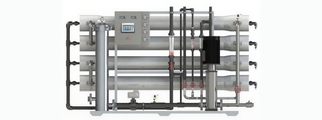
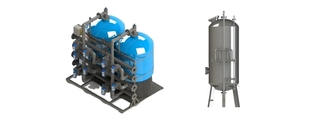
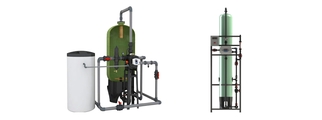
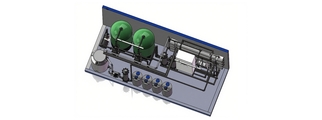
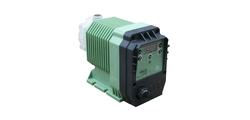
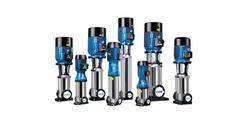
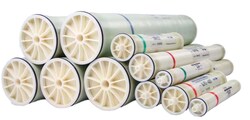
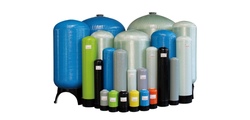
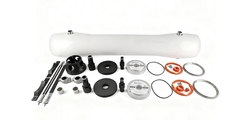
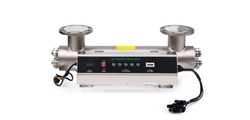
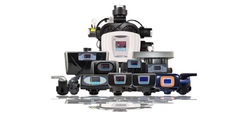
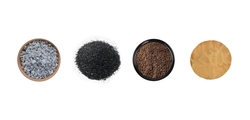
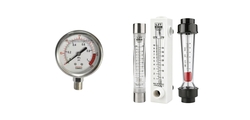
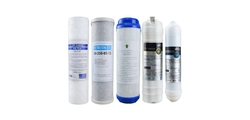
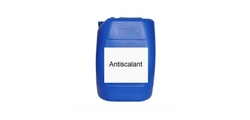
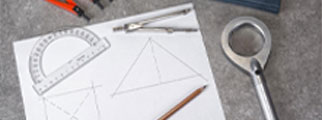



AQUALITEK- Aimee Hoo
AQUALITEK - Aimee Hoo